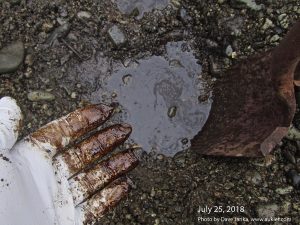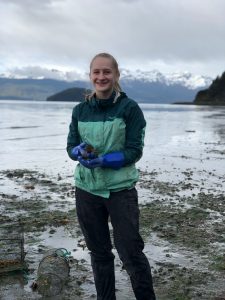On March 24, 1989, the tanker Exxon Valdez ran aground on a charted rock, Bligh Reef, in Prince William Sound. An estimated 11 million gallons (257,000 barrels) of Alaska North Slope crude oil spilled into the remote, pristine, resource-laden environment, less than 30 miles from Valdez. The oil fouled approximately 1,300 miles of wildlife-abundant shoreline.
Alaskans worked hard to make changes and develop a better system. One of these changes, the Prince William Sound Regional Citizens’ Advisory Council, works every day to make sure this type of disaster never happens again.
Here are a few of the lessons we’ve documented:

- Be prepared. Contingency plans must be in place ahead of time to quickly and effectively respond to an oil spill. More about Alaska’s plans: Contingency Plans
- Train responders before a spill: Proper training is essential for an effective response in an emergency situation. More about how local Alaskans are trained to protect their waters: Fishing Vessel Oil Spill Response Training
- Maintain best available technology: Constantly improving technology for detecting and responding to oil spills, including better communication systems, and improves cleanup and containment systems. More: Council research fills gap in knowledge about line-throwing technology
- Maintain strong regulations: Strong regulatory oversight ensures that everyone follows best practices for oil spill prevention, response, and cleanup. More: How Alaskans redefined oil spill prevention and response
- Involve the public: The Exxon Valdez oil spill showed the importance of involving the public in decision-making processes related to oil spill prevention, response, and cleanup. More: An innovative solution – regional citizens’ advisory councils
- Prevent spills from happening: One of the biggest lessons is that preventing a spill in the first place is the best way to protect the environment. No spill can ever be completely cleaned up. Oil from the Exxon Valdez spill can still be found in some locations in Prince William Sound. More: Lingering oil (EVOSTC website)
